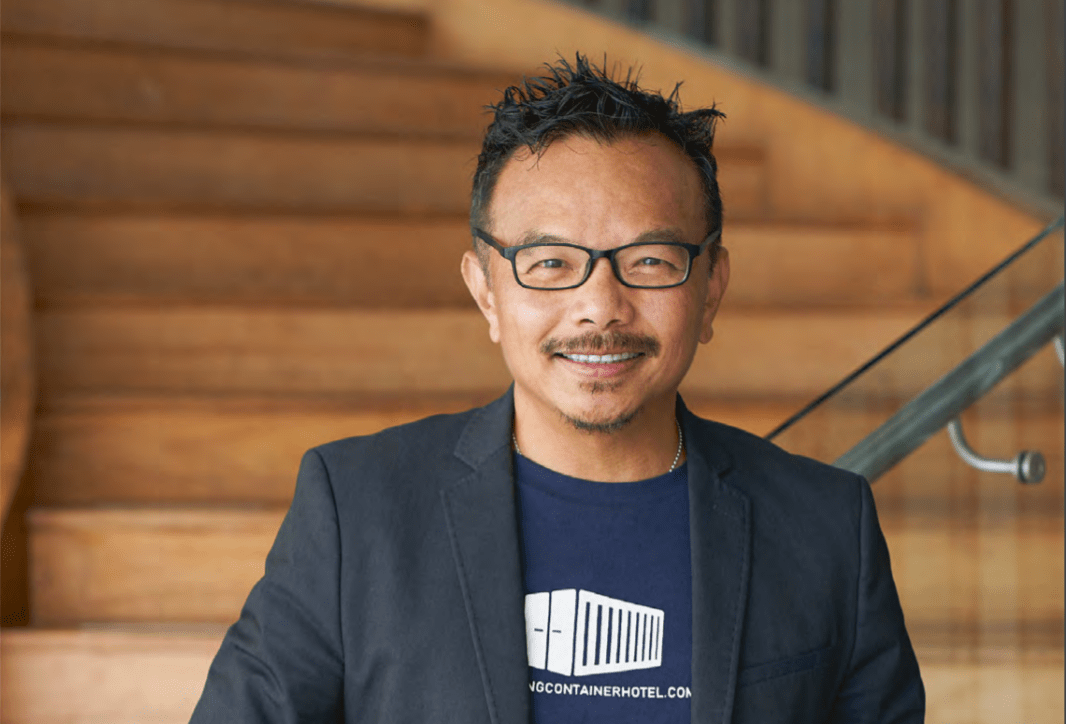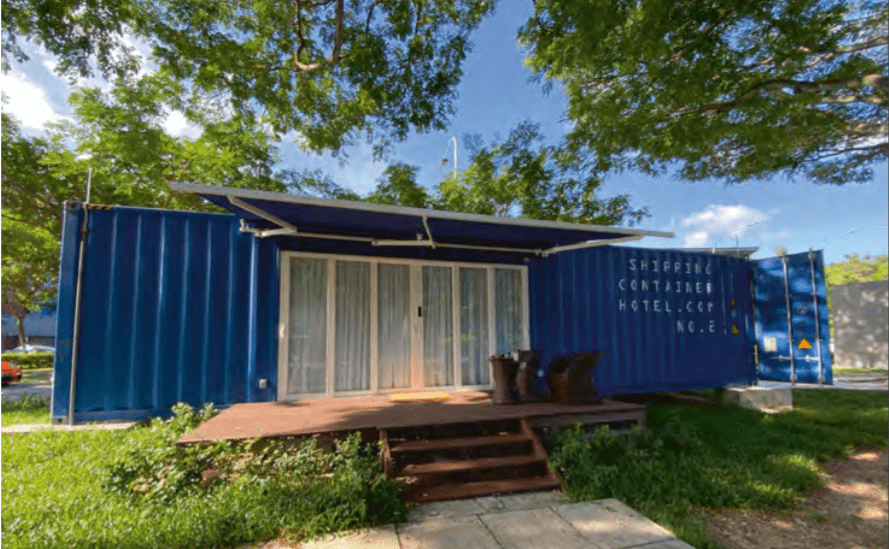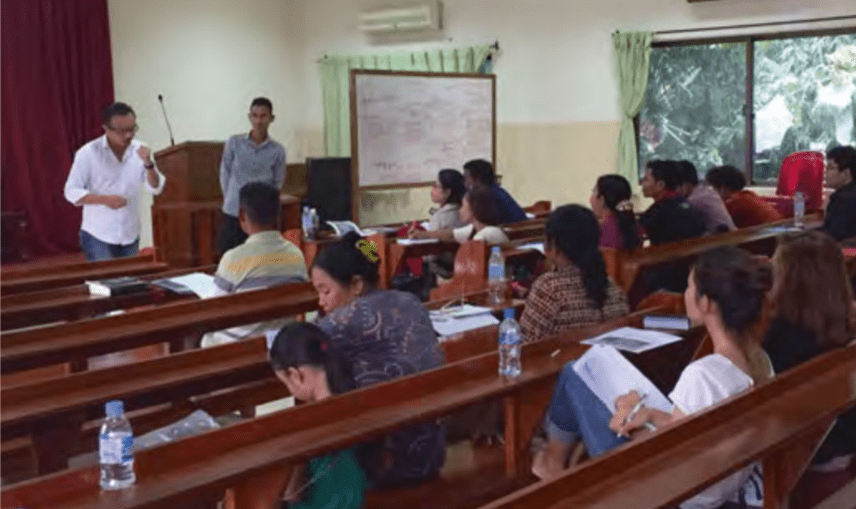Member Spotlight: Seah Liang Chiang
Member Spotlight: Seah Liang Chiang

One might be forgiven for assuming that Singapore’s first container hotel was dreamt up by a young millennial. This quirky hipster pad, however, is the brainchild of 55-year-old Seah Liang Chiang, a serial
entrepreneur of 30 years, and a Member of ONE°15 Marina Sentosa Cove for close to a decade. The spirit of adventure courses through his veins, and probably explains his youthful demeanour, infectious energy and out-of-the-box ideas at an age where many of his peers may be winding down for retirement.
LIFETIME OF ADVENTURES
Seah spent his 40s checking some 25 gruelling endurance sports such as triathlons, duathlons and marathons off his list. He joined ONE°15 Marina Sentosa Cove and sought out unbridled adventures and
freedom at sea on his own speedboat, which he subsequently traded for a yacht.
“My whole life is an adventure. I don’t want to live a mundane nine-to-five life. And to me, ONE°15 Marina Sentosa Cove epitomises that kind of adventurous feeling. It is a launch pad for me to discover the
world,” he says. “I find it stressful being on a plane and dealing with immigrations, but I love boating because it allows me to escape for half a day and switch off from my daily worries,” he adds, sharing that Pulau Seringat, five minutes from Sentosa Cove, is among his favourite hangout spots to swim and kick back on the beach. A few years ago, the adventure junkie sold off his yacht in favour of a jet ski. “Being a business owner, you endure a lot of stress. When you go jet skiing, you’re focused on doing something. You can’t check your phone and are not thinking about (your) business,” says Seah, whose love for the sea and adventure matches his fascination with being off the grid.
BUILDING HIS SANCTUM
“In the purest sense, ‘off the grid’ means you have no electricity or access to telecommunications, and rely
on nature. I have always been captivated by the idea. In a lot of American and European movies, people
own a cabin in the woods and drive there for the
holidays and weekends,” he shares. This was something Seah always wanted to try himself. So two years ago, he brought this fantasy to fruition on an empty half-acre (0.20ha) plot of land he owned in Johor. Plus, it faced a picturesque lake. “In America, most people build wooden cabins. But in our kind of weather, wood would rot. I looked for alternative types of cabins and chanced upon shipping containers being used as houses in the West. It makes so much sense to use metal over wood. It is much cheaper, and easy to transport a shipping container from one site to another,” he says.
Seah drove around ports in Johor shopping for a suitable shipping container, and finally acquired one for RM5,000 (approximately $1,650). With a budget of about $16,500 on hand, he designed a fully air-conditioned cabin with windows, hot water and a toilet. Once every few months, Seah would go to his man den to hang out for the weekend. One day as he was enjoying his morning coffee on the deck of his metal cabin facing the lake, an idea dawned upon him: what if he could offer Singaporeans an off-the-grid escape like this as well? And just like that, Singapore’s first container hotel was born.
NOMADIC STAYCATIONS
“My whole life is an adventure. I don’t want to live a mundane nine-to-five life.”

Seah Liang Chiang’s first container hotel at the JTC LaunchPad @ One-North. Seah’s air-conditioned containers are fully furnished and even come with amenities such as hot water.
Seah chose to set up his first container hotel at the JTC LaunchPad @ One-North, beginning with just two units or rooms. “JTC LaunchPad is an ‘exclusive club’ for new ideas. There are many companies there, all of which are start-ups. It encourages risk-taking,” he notes. That said, Seah never intended his container apartments to remain at one-north permanently. What is unique about these mobile metal cabins is that they can be lifted by a crane and easily moved to a new location. “Most hotels want you to be a captive within their premises. My hotel allows people to be plugged into different environments so they can explore the neighbourhood. This can be moved every two years to a new location such as the beach, park or hills—places where they cannot usually find a hotel,” he enthuses.
“When young people today stay in a hotel, they don’t just look for a room. They are living in an Instagrammable moment, and the key word here is ‘experience’. They are so influenced by social media. They see it every day on their mobile phones and want to be a part of that ecosystem,” he observes. Seah seems to have read the pulse of youth culture well. Despite the COVID-19 outbreak, his two container hotel rooms remained 80 per cent full for the month of March 2020, and mostly booked by young local guests.
SHARING THE PASSION

Besides off -the-grid living, another thing the businessman is equally passionate about is giving back to the community. Together with a few friends, he set up a fund to support budding entrepreneurs in impoverished communities in Cambodia. Seah has been conducting a four-day business course yearly via his church’s outreach programme.
After the course, students are encouraged to present a business plan. The best five presentations are supported with funds and a mentorship programme. Over the past five years, Seah and his friends have supported more than 20 such projects. One of their best investments is a business set up by a divorcee who was a victim of domestic abuse. “She used the funds to buy sewing machines and set up a shop, hiring other abused divorced women like her to sew clothes and purses. Th is not only helped her to get out of poverty but helps people around her as well,” says Seah. He adds that that is in fact what he loves most about travelling—the opportunity to plug into communities and make a positive impact.

